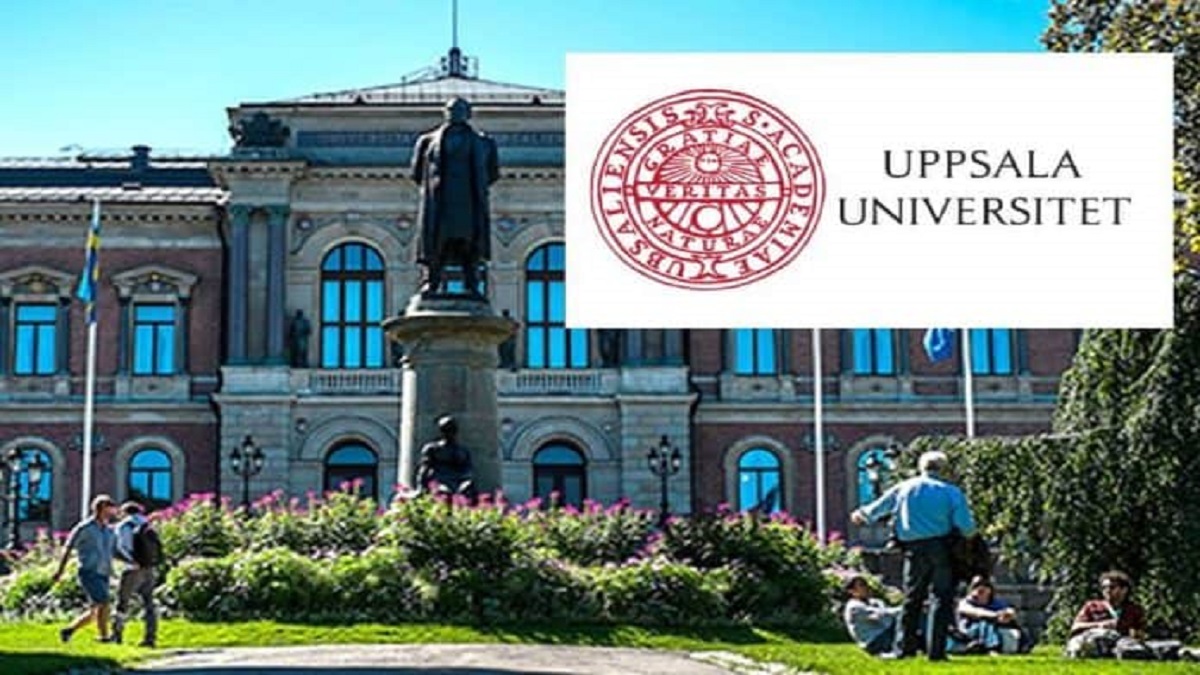
Uppsala University is a comprehensive research-intensive university with a strong international standing. Our ultimate goal is to conduct education and research of the highest quality and relevance to make a long-term difference in society. Our most important assets are all the individuals whose curiosity and dedication make Uppsala University one of Sweden’s most exciting workplaces. Uppsala University has over 54,000 students, more than 7,500 employees and a turnover of around SEK 8 billion.
Uppsala University’s tenure track system grants assistant professors the possibility to be assessed for promotion to the position as associate professor. The university provides support in various areas, such as scientific and educational development, leadership development as well as patent and innovation support.
The Department of Physics and Astronomy at Uppsala University and the Nordic Institute of Theoretical Physics (Nordita), Stockholm invite applications for a tenure-track faculty position in the area of theoretical quantum information science. This position is within the Wallenberg Initiative on Networks and Quantum information (WINQ) at Nordita, with the appointment as assistant professor at Uppsala University.
The Department of Physics and Astronomy is one of Uppsala University’s largest departments, with around 400 employees, of which about 125 are doctoral students. The department conducts world-class research and education in both theoretical and experimental physics and has extensive collaboration with the outside world. The research is carried out at 10 research divisions and touches on everything from the incredibly small to the extremely large in, for example, energy supply, climate development, new materials, and the universe. This whole spectrum of research is also reflected in the department’s courses and educational programs. Every year, around 2.500 students study courses at bachelor’s and master’s level at the department. Read more at www.physics.uu.se. The position is within the Division of Materials Theory, which offers a world-class environment for quantum matter theory and materials theory research, with interests spanning from strongly correlated and topological states of matter and quantum information, to atomistic spin simulations and first-principles calculations of a very broad range of complex and functional materials. The division currently consists of approximately 90 researchers, of which about a third are Ph.D. students.
Nordita was founded in 1957 in Copenhagen, Denmark, and was relocated to the AlbaNova University Center in Stockholm in January 2007 where it is jointly hosted by Stockholm University and KTH Royal Institute of Technology. Research at Nordita covers a wide range of modern theoretical physics including astrophysics, biological physics, condensed matter physics, gravitation, cosmology and astroparticle physics, quantum information, high-energy physics, and statistical physics/complex systems. The research activity of the local academic staff is supplemented by Nordita Scientific Programs, which bring together groups of leading experts to work on specific topics for extended periods. There is also ample opportunity for collaboration with faculty and research staff at local universities.
Description of subject area of the employment
The position is associated with the Wallenberg Initiative on Networks and Quantum information (WINQ) hosted by Nordita in Stockholm. WINQ is part of an ambitious, wide-ranging strategic initiative in frontier information technologies funded by the Knut and Alice Wallenberg Foundation (KAW). WINQ aims, over the next few years, to nurture research activities centered around theory of quantum information and complex networks. The surrounding circle of ideas includes quantum computers, machine learning, and “big data”. The WINQ initiative constitutes a sizable investment in theoretical physics that complements the strategic contributions made by KAW in the fields of artificial intelligence (WASP) and quantum technology (WACQT), with which WINQ members will interact via common activities across Sweden. The WINQ initiative covers both resident positions at Nordita and support for visitors and workshops.
Areas of interests encompass theoretical quantum information science, and span, but are not limited to, quantum information theory, quantum error correction, tensor networks, machine learning, quantum algorithms, quantum control, quantum simulation, the interface of quantum information and many-body theory, non-equilibrium phases of quantum matter, quantum networks, and quantum sensors.
The aim of the position is to establish a vigorous and well-funded research group in theoretical quantum information science within the context of WINQ at Nordita and at Uppsala University.
Duties:
- Teaching, research and administration. Teaching duties include course responsibility, course administration, and supervision of second- (master) and third-cycle (doctoral) students. The research tasks involve, but are not limited to, publications in international journals of the highest quality, presentation of research results at international conferences, and writing research proposals for external funding agencies. The position may include administrative and managerial duties at the division and/or department.
- Follow developments within the subject area and the development of society in general that is important for the work at the university.
- The position will include active participation in the WINQ project at Nordita and with substantial time commitment in both Stockholm and Uppsala.
Appointment Period
The position can be held for a maximum of six years. An Assistant Professor can apply for promotion to Associate Professor. If the Assistant Professor is deemed suitable and fulfills the criteria for promotion established by the Faculty Board he/she shall be promoted to and employed as Associate Professor.
Qualifications Required
- PhD or equivalent in physics or closely related field. The candidate must have postdoctoral experience at the time of the appointment. Applicants who have obtained a PhD degree or achieved the equivalent competence in five years or less prior to the end of the application period will be given priority.
- Research Expertise and Teaching Expertise. It is necessary that the pedagogical skills, the research expertise, and the professional skills are relevant to the content of the employment and the tasks that will be included in the employment.
- Applicants should have completed teacher training of relevance to operations at the University, comprising five weeks, or have acquired the equivalent knowledge. If special circumstances apply, this training for teachers in higher education may be completed during the first two years of employment.
- Documented ability to teach in Swedish or English is a requirement unless special reasons prevail. Courses given within the first cycle (Bachelor level) are commonly given in Swedish, while most courses at second and third cycle levels (Master and Ph.D. level) are given in English. Support can be given to new employees to learn Swedish.
- Personal capabilities necessary to carry out fully the duties of the appointment.
Assessment Criteria/Ranking of applicants that fulfil the above-mentioned qualifications required:
The ranking of eligible applicants will be based primarily on research and teaching expertise, which will be given equal weight.
Research Expertise comprises research merits as well as the applicant´s potential to contribute to the future development of both research and teaching. In assessing research expertise research quality must be the prime consideration. The scope of research, primarily in regard to depth and breadth, must also be afforded consideration. In assessing research expertise special weight will be attached to research merits in the area of theoretical quantum information science. Areas of interest include, but are not limited to, quantum information theory, quantum error correction, tensor networks, machine learning, quantum algorithms, quantum control, quantum simulation, the interface of quantum information and many-body theory, non-equilibrium phases of quantum matter, quantum networks, and quantum sensors. Furthermore, consideration is given to the capacity to plan, initiate, organize, lead, and develop research, as well as the ability to acquire funding for research in competition.
Teaching Expertise comprises educational and teaching qualifications. In assessing teaching expertise teaching quality must be the prime consideration. The scope of teaching experience, in terms of both breadth and depth, must also be afforded consideration. In assessing teaching expertise special weight will be attached to merits in undergraduate and graduate teaching of theoretical physics or quantum information science.
Administrative Expertise is important for the employment and will be given consideration. Administrative expertise is demonstrated, for example, through the capacity to plan, organise, and prioritise work in an efficient and task-related manner as well as through the ability to assign and observe time frames. Expertise includes overall operational planning and the capacity to manage resources in a way that reflects operational priorities as well as the ability to work in a structured manner based on an awareness of goals and quality.
Collaboration Expertise is important and will be afforded consideration. Collaborative expertise is demonstrated by the ability and skill of planning, organizing and implementing interaction with the surrounding community. Popular publications, public debate and lectures are examples of forms of interaction with the surrounding community. Other examples of collaboration are patent applications, commercialization and industrial cooperation. The ability to translate knowledge sharing with the surrounding community into activities of importance to the education’s development and quality is part of the collaboration expertise.
Other Expertise: Postdoctoral experience in a different research environment than for the doctoral studies is a merit. All merits must be documented in a manner that makes it possible to assess both quality and scope.
In filling this position, the university aims to appoint the applicant who, following a qualitative holistic assessment of her/his competence and expertise, is judged to have the best potential to carry out and develop the relevant duties and to help advance operations.
Further information: In an overall assessment of the applicant’s qualifications, parental leave, part-time work relating to care of children, union assignments, military service, or the like are to be regarded as work experience.
University appointment regulations
Faculty appointment regulations
About the employment
The employment is a temporary position six years. Working hours is 100 %. Starting date as agreed. Placement: Stockholm, Uppsala.
For further information about the position, please contact Professor Annica Black-Schaffer, phone +46 76-7950649, e-mail: annica.black-schaffer@physics.uu.se.
Please submit your application by August 9 2023, UFV-PA 2023/1552.
In the event of any disagreement between the English and the Swedish versions of this announcement, the Swedish version takes precedence.
If you are an international candidate, you will find a lot of information about working and living in Sweden at www.uu.se/joinus.
Please do not send offers of recruitment or advertising services.
Submit your application through Uppsala University’s recruitment system.
Placement: Department of Physics and Astronomy
Type of employment: Full time , Temporary position
Pay: Individual salary
Number of positions: 1
Working hours: 100%
Town: Uppsala, Stockholm
County: Uppsala län
Country: Sweden
Union representative: Seko Universitetsklubben seko@uadm.uu.se
ST/TCO tco@fackorg.uu.se
Saco-rådet saco@uadm.uu.se
Number of reference: UFV-PA 2023/1552
Last application date: 2023-08-09





